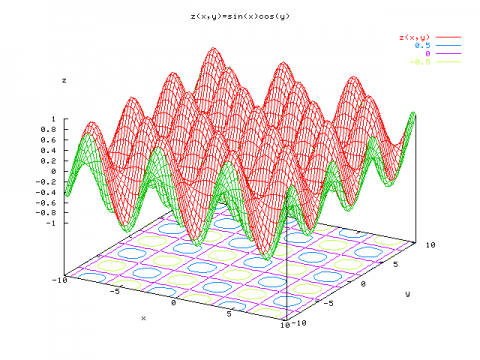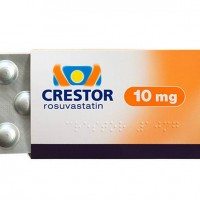
An inverted quantum matrix proving the myriad benefits of using of a dental doula
Suzy Flanders had always dreamed of having a natural tooth extraction without pain medications, sedation, or local anesthesia, just like in the Bible or on an episode of Keeping Up With Kardashians. “When the day finally came on April 1st 2011, and my dentist recommended the removal of an impacted third molar, I almost couldn’t believe it,” Flanders explained. “After reading everything I could find online and talking to a few trusted friends and family members, the right choice became clear. I had to do what was best for me and for my precious tooth.”
What she found in her research was the consistent recommendation to have someone present during the procedure that had been through the experience themselves. Many proponents of natural dental care endorse this practice because there is evidence that it helps to reduce the need for harmful medications that might prevent a quick return to normal activity. They also argue that a dental procedure is about more than just the removal of an abscessed tooth or the correction of malocclusion, it’s about experiencing what the procedure feels like and discovering what you are capable of achieving. Natural dental care patients learn to manage their pain and remain open to the excitement and exhilaration of the process, and often report feeling higher levels of satisfaction. After all, modern humans have been experiencing the beauty of natural dental pain for 250,000 years.
After discussing the idea with her husband Daniel, Flanders decided to seek out the services of a dental doula.
What is a dental doula?
Similar to doulas that attend the birthing of children or farm animals, the specific focus of a dental doula involves being present prior to and during a procedure in order to provide reassurance, support, and information. The dental doula that Flanders found served as a calming presence and a firm voice of support and encouragement throughout the extraction. “We really connected. She had been through it all herself after a rollerblading accident resulted in a fractured maxillary central incisor, so she knew the pain that I was feeling. I was able to focus on her voice and cling to it like a piece of floating driftwood during a powerful storm.”
Introspective data from across the nation has shown an increasing utilization of dental doula services over the past decade. According to the American College of Dental Doulas spokesdoula Kate Orberton, people are realizing that dental doulas empower patients and ease communication with dentists, orthodontists, and their support staff without giving dental advice. Orberton stressed that dental doulas are not a replacement for licensed oral health professionals.
First-time dental patients are especially vulnerable, according to Orberton. When a dental doula enters the room, they allow for the patient to relax and focus on blocking out the agony that they are about to experience. They are ready with helpful information and they encourage reasonable expectations. “We can tell the patient that they made the right choice and help them to focus on the benefits of that choice, between the intermittent shrieks and sobs.”
Are there downsides to using a dental doula?
The American Dental Association recently raised concerns over the increasing popularity of dental doula services. Although this hasn’t been studied specifically, some ADA members believe that there is a link between dental doulas and the rise in home dentistry. Though almost unheard of a few decades ago, currently about 1-2% of dental procedures are being performed at home by direct entry traditional mouth healers. Although in low risk patients, such as healthy children with an uncomplicated loose tooth, home dentistry is considered by many to be safe and effective, more complicated procedures should be performed under the care of a trained professional. Some dental experts argue, however, that even seemingly uncomplicated extractions have the potential to require higher levels of care.
Currently, no states require certification of competence for dental doulas or any form of licensure. Grant Ritchey, a natural dentist in Tonganoxie, Kansas, compares the current dental doula climate to the Wild West. “You don’t know what you are going to get unless you do your homework. Some dental doulas are excellent, some don’t know the oral cavity from a hole in their head. I know when a patient has made a good choice though. They all scream, but there is an underlying peace beneath the screams that reminds me of why I got into dentistry in the first place.”
What’s the bottom line on dental doulas?
A dental procedure, like the extraction of a diseased premolar, can be one of the most rewarding and meaningful experiences in a person’s life, but it can also be one of the most challenging. Patients who rate their procedures as positive on Yelp tend to express feelings of being in control. Dental doulas work for the patient, not the dentist or insurance company, which frees them from many constraints that interfere with the desired outcome. Dental procedures are about more than just fixing a tooth, they are about fulfilling a mouth’s destiny.
Fast forward to today and Suzy Flanders has now had three natural root canals in addition to the extraction, all with the aid of a dental doula. She is even considering a fourth root canal and is interested in having the procedure done in a warm water environment surrounded by koi and/or a dolphin. Because of her positive experiences with dental doulas, she says she would recommend them to anyone. “I will never forget when Dr. Ritchey handed me my extracted tooth, my husband on my right and my dental doula on my left, both enveloping me with gentle and relaxing energy.”

